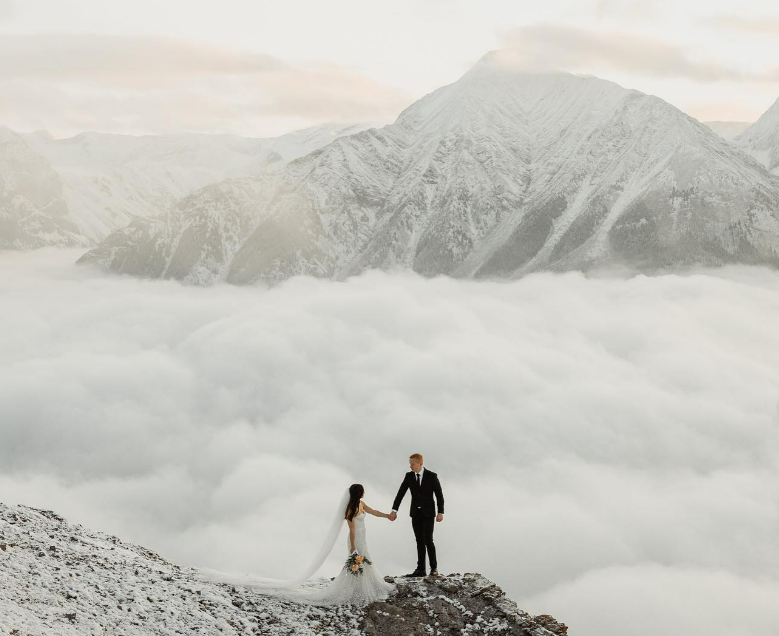Beautiful Plants For Your Interior

Winter, with its snow-draped landscapes and crisp, cool air, is often romanticized in literature and art. But when it comes to weddings, summer has traditionally stolen the spotlight. However, winter weddings have started to gain traction, offering couples unique opportunities and challenges. If you’re considering tying the knot during the colder months, this article will delve into the pros and cons, helping you determine if a winter wedding is right for you.
Overview
| Section | Sub-Section | Description |
|---|---|---|
| Overview | Title | Is it a Good Idea to Have a Winter Wedding? |
| Introduction | Winter, with its snow-draped landscapes… is right for you. | |
| Advantages | Unique Aesthetic Appeal | There’s an undeniable charm in a snow-covered backdrop… |
| Venue and Vendor Availability | Summer and early autumn are peak wedding seasons… | |
| Diverse Fashion Choices | Winter weddings allow for luxurious fabrics… | |
| Memorable Themes and Decor | From Christmas-themed weddings… | |
| Less Stress Over Weather | With a winter wedding, there’s an expectation of cold… | |
| Cozy Atmosphere | Winter weddings inherently have a warm and intimate feel… | |
| Challenges | Potential Travel Disruptions | Snowstorms can lead to canceled flights… |
| Limited Daylight | Shorter days mean you’ll have fewer daylight hours… | |
| Cold Weather Considerations | While snow can provide a magical backdrop… | |
| Floral Limitations | Some popular flowers might not be in season… | |
| Holiday Conflicts | December is a festive month filled with holiday parties… | |
| Tips | Plan for the Worst, Hope for the Best | Have a contingency plan for extreme weather conditions… |
| Embrace the Season | Incorporate winter elements into your decor, menu, and favors… | |
| Stay Warm | If you’re planning any outdoor activities… | |
| Opt for Early Ceremonies | To make the most of the limited daylight… | |
| Communicate with Guests | If there’s a potential for inclement weather… |

Advantages of a Winter Wedding:
- Unique Aesthetic Appeal: There’s an undeniable charm in a snow-covered backdrop with twinkling fairy lights and cozy indoor settings. A winter wonderland offers stunning photo opportunities that can’t be replicated in any other season.
- Venue and Vendor Availability: Summer and early autumn are peak wedding seasons. Opting for a winter date can offer more flexibility in choosing your preferred venue and vendors. Plus, there might be off-season discounts, which can significantly reduce your wedding budget.
- Diverse Fashion Choices: Winter weddings allow for luxurious fabrics like velvet, fur, and heavy silk. Brides can opt for elegant long-sleeved gowns, and grooms can wear sophisticated tuxedos. Additionally, accessories like fur stoles, gloves, and stylish boots can enhance the wedding attire.
- Memorable Themes and Decor: From Christmas-themed weddings with red and green palettes to New Year’s Eve celebrations with glitter and gold, winter offers a variety of unique themes. The decor can be filled with candles, pinecones, and evergreen branches, creating a cozy and romantic ambiance.
- Less Stress Over Weather: With a winter wedding, there’s an expectation of cold, and possibly even snow. This means that plans are often indoor-centric, reducing the uncertainty and stress that unpredictable weather can bring to outdoor summer weddings.
- Cozy Atmosphere: Winter weddings inherently have a warm and intimate feel. Guests can gather around fireplaces, enjoy hot cocoa or mulled wine, and indulge in hearty winter dishes.
- Exclusive Experience for Guests: With fewer weddings taking place in the winter, attending one can feel like a unique and memorable experience for guests.
- Favorable Hotel Rates: Accommodation can be cheaper during the off-peak winter season. This can be especially advantageous for out-of-town guests or if you’re planning to provide rooms.
- Anniversary Celebrations: Future anniversaries in the winter months can be a great excuse for romantic getaways to cozy cabins or snow resorts.
- Invitations Stand Out: Your winter wedding invitation is less likely to get lost in a stack of summer wedding invites, ensuring a better response rate.
- Intimate Feel: The winter season can often bring an intimate and close-knit atmosphere to your wedding, making the event feel more personal.
- Diverse Menu Options: The colder months introduce a range of hearty and warm dishes, allowing for a varied and comforting wedding menu.
- Fewer Allergies: With less pollen in the air, guests susceptible to allergies can enjoy the event with fewer interruptions.
- Extended Honeymoon Choices: While you’re wrapped up in the cold, it might be the perfect time to honeymoon in a tropical location, offering a diverse experience.
- Availability of Dates: Not being confined to the popular wedding weekends of the summer means you might find your preferred date more easily.
- Winter Activities: Depending on the location, activities like ice skating, sleigh rides, or even skiing can be incorporated into the wedding festivities. Remember, the charm of a winter wedding often lies in the contrasts it offers: the warmth of love amidst the cold, the bright joy against a white backdrop, and the intimacy of gatherings during the expansive chill.
Challenges of a Winter Wedding:
- Potential Travel Disruptions: Snowstorms can lead to canceled flights or hazardous driving conditions. This can be a significant concern if you have many out-of-town guests or if you’re planning a destination wedding.
- Limited Daylight: Shorter days mean you’ll have fewer daylight hours for outdoor photos. You’ll need to plan your ceremony and photo sessions accordingly, possibly relying more on artificial lighting.
- Cold Weather Considerations: While snow can provide a magical backdrop, it can also bring challenges. Outdoor photo sessions might be cold and uncomfortable, and guests might have to navigate slippery paths.
- Floral Limitations: Some popular flowers might not be in season during the winter months, potentially increasing costs or requiring you to rethink floral arrangements.
- Holiday Conflicts: December is a festive month filled with holiday parties and family commitments. Some guests might find it challenging to attend a wedding during this busy period.
- Health Concerns: Winter months often coincide with flu season, which might result in a higher likelihood of guests (or even the couple) falling ill.
- Layered Clothing: Guests may need to wear heavy coats and additional layers which can be cumbersome, especially if the venue lacks a designated area for coat checks.
- Comfort of Elderly Guests: The cold can be particularly challenging for older guests, who might find it difficult to cope with freezing temperatures or icy conditions.
- Heating Costs: Ensuring your venue is adequately heated can add an extra cost to your wedding budget.
- Limited Outdoor Activities: Due to cold or unpredictable weather, you might be restricted in terms of outdoor activities or ceremonies.
- Shorter Preparation Time: The early sunset means that there’s less time to set things up in natural light, which can be a challenge for decorators and planners.
- Risk of Power Outages: Winter storms can sometimes lead to power outages, which could disrupt the wedding festivities.
- Difficulties with Attire: Delicate wedding dresses and formalwear might not be compatible with wet or snowy conditions, risking potential damage.
- Less Vibrant Nature: If you dream of lush green photos, winter might not be the best choice as many trees and plants are dormant.
- Potential Venue Limitations: Some venues, especially those optimal for outdoor events, might be closed or not adequately equipped for winter events. While these challenges are pertinent, they can be addressed with meticulous planning and backup options. It’s essential to be prepared, but many couples find that the uniqueness of a winter wedding outweighs the potential difficulties.

Tips for a Successful Winter Wedding:
- Plan for the Worst, Hope for the Best: Have a contingency plan for extreme weather conditions, ensuring that guests can safely travel to and from your venue.
- Embrace the Season: Incorporate winter elements into your decor, menu, and favors. Think of comfort foods, warm drinks, and cozy blankets as gifts.
- Stay Warm: If you’re planning any outdoor activities, ensure you and your guests stay warm. Consider providing heaters, shawls, or even cute mittens.
- Opt for Early Ceremonies: To make the most of the limited daylight, consider having your ceremony earlier in the day.
- Communicate with Guests: If there’s a potential for inclement weather, keep your guests informed about any changes or preparations.
- Choose Winter-Resilient Flowers: Opt for flowers that thrive in cooler temperatures, like roses, amaryllises, or orchids, to ensure they remain fresh throughout the event.
- Prep for Photography: Talk with your photographer about creative lighting techniques or alternative indoor locations, so you’re prepared for the limited daylight or unforeseen weather changes.
- Offer Warm Beverages: Set up a hot drink station with options like hot cocoa, spiced cider, and warm teas. You can even have a coffee bar with flavored syrups.
- Prepare for Footwear: If there’s a likelihood of snow or slush, consider having an area where guests can change shoes or place protective covers over them.
- Weatherproof Your Makeup: Ensure you and your bridal party use makeup products that are resilient to cold and potential moisture, ensuring everyone looks their best throughout.
- Utilize Candles: The glow of candles can enhance the ambiance, making spaces feel warm, intimate, and incredibly romantic.
- Invest in a Good PA System: With the pitter-patter of rain or the rustle of winds, you’ll want to ensure that your vows and speeches are heard clearly.
- Offer Blankets or Shawls: These not only make cozy favors but also ensure guests are comfortable during any outdoor moments or chillier indoor venues.
- Consider Transportation: If you anticipate heavy snow or slippery roads, you might want to arrange transportation for guests from the hotel to the venue to ensure safety.
- Use Winter Accessories: Think of elegant gloves, shawls, and even cute umbrellas that can be used for photo props and also provide warmth and protection.
- Send Reminders: A week before the wedding, send out a weather update to your guests with any necessary suggestions or changes, ensuring everyone is prepared.

Conclusion:
The allure of a winter wedding is undeniable. With snow-kissed landscapes, the promise of a cozy ambiance, and the potential for truly unique and enchanting themes, it’s easy to understand why couples may be drawn to celebrate their love during this season. However, like every decision of significance, it comes with its own set of challenges – potential travel disruptions, the biting cold, and shorter days, to name a few.
That said, every season has its advantages and pitfalls, and winter is no exception. The decision ultimately depends on the couple’s vision for their big day, their preparedness to face the challenges head-on, and their willingness to embrace the season’s quirks. A well-planned winter wedding can indeed be a magical affair, standing out in the memories of all in attendance for years to come.
Moreover, in the landscape of weddings, a winter celebration offers a breath of fresh air. It breaks away from tradition, providing guests with a different experience and often a more intimate setting. It’s also a testament to the couple’s adventurous spirit and their determination to make the most of what the season has to offer.
To answer the question, “Is it a good idea to have a winter wedding?” – it certainly can be. The key is to approach the decision with a clear understanding of both the challenges and the unparalleled opportunities. After all, starting the journey of marriage amidst the backdrop of a winter wonderland can be symbolic of the couple’s resilience, warmth, and the brightness of their love in the face of life’s colder moments.




